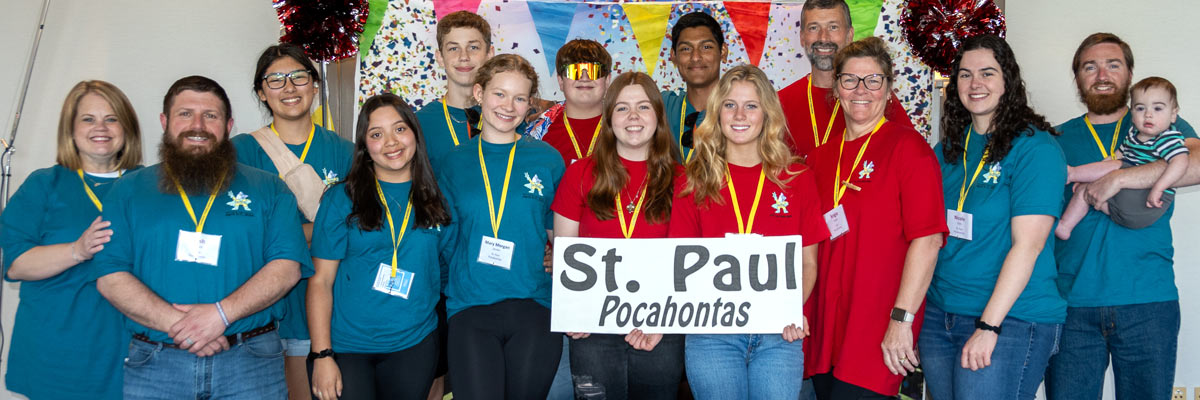Official Website of the
Catholic Diocese of Little Rock
Solemnity of the Nativity of St. John the Baptist 2018
Published: June 24, 2018
Bishop Anthony B. Taylor preached the following homily at the Cathedral of St. Andrew in Little Rock on Sunday, June 24, 2018.

Bishop Taylor
God has many messengers, including angels and prophets. When it's good news he sends an angel, but when the message is challenging he sends a prophet, all of whom end up persecuted by the powers that be.
St. Teresa of Ávila once said: "It's no wonder you have so few friends Lord, look at how you treat them!" No prophet ever sought the job, but from early on — from their mother's womb — God had entrusted it to them and they knew they had to do it. God said to Jeremiah: "Have no fear ... I am with you to deliver you," but we soon discover that deliver you doesn't mean you aren't going to get hurt.
Today we celebrate the birth of the last prophet of the old covenant and the first of the new. John the Baptist had a very difficult task: to get people to open their hearts to receive their Savior. The biggest obstacle that he had to overcome was that many people were comfortable with their sins and didn't see a need to change.
John the Baptist's message made individual people feel uncomfortable, but they knew he was right ... they did need to put their lives in order and open their hearts to God. He only got into real trouble when he began to condemn injustices in the larger society: the erratic, immoral and ruthless behavior of the king and the resulting policies of his government.
They had already adapted to a mediocre existence. They didn't want to see — neither what was missing in their lives nor how much better it would be if they 1.) repented of their sins, and 2.) opened their hearts to receive their Savior.
Isn't it true that when we receive valued guests we clean the house? Well Jesus, John the Baptist and many of the other prophets say it's the same in the spiritual life. We need to clean our spiritual house in order to receive appropriately our divine guest. That's why we have to be in a state of grace to receive the Eucharist.
Not because Jesus would ever reject us, but rather because if we don’t prepare ourselves spiritually to receive him, we’re at least taking him for granted, as if who he is and what he means for us doesn’t really matter. And this is true individually — the spiritual condition of our soul — and as a community, and that’s where things get a lot more difficult.
John the Baptist's message made individual people feel uncomfortable, but they knew he was right ... they did need to put their lives in order and open their hearts to God. He only got into real trouble when he began to condemn injustices in the larger society: the erratic, immoral and ruthless behavior of the king and the resulting policies of his government.
Also the greed of the upper class which benefitted from these policies at the expense of the poorest and weakest members of society. The powers that be were the ones who rejected the prophets and their message, sometimes killing them, like John the Baptist, for instance.
And in a much less dramatic fashion, the same thing happens today. Almost no one gets angry when I say people need to put their individual lives in order and open their hearts to God — a message that remains as important today as it was 2,000 years ago. But when I speak about the conversion also of the community, criticizing the actions of leaders in our society on some issue of morality or social justice, for instance regarding the human rights of immigrants, there’s always someone who gets really mad and says that I should stay out of politics when I’m simply preaching the Gospel.
The only exception is regarding opposition to abortion, for which I receive strong support. But on any other topic, I simply lay out Church teaching as clearly as I can — for instance, earlier this week condemning the separation of children from their mothers — a pro-life, pro-family issue if there ever was one — and then I leave it to the hearers to figure out what should be done about it.
If that’s politics, then everything is politics. That’s how Herod took John the Baptist’s criticism of him and his policies, but John the Baptist was simply concerned about the state of his soul and the soul of their nation. And the same is true for us today. My role, like that of John the Baptist, is simply to call people to conversion, both individually and as a community, including as a Church and as a nation.









